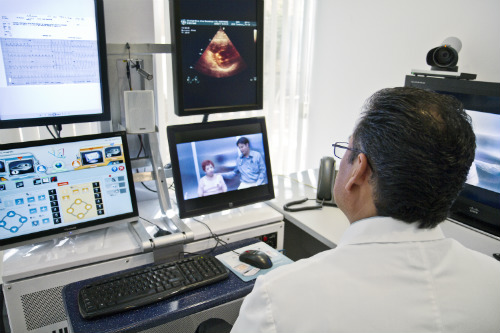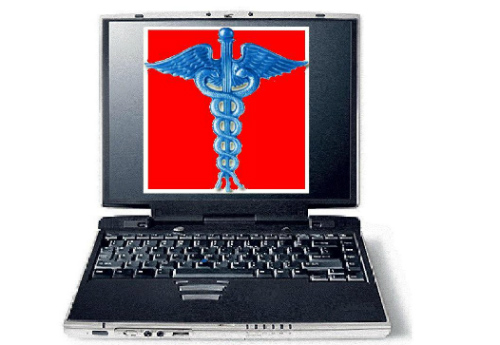- The Meaningful Use program will end in 2016 and will transition to the Medicare and CHIP Reauthorization Act of 2015 (MACRA) and the Merit-Based Incentive Payment System (MIPS) by 2019.
- The specifics of the new programs will be revealed in early 2016.
- Meaningful Use has successfully resulted in the widespread implementation and use of healthcare information technology (HIT) and systems.
- MACRA and MIPS will focus on the use of HIT to improve clinical outcomes and patient experience.
The Centers for Medicare and Medicaid Services (CMS) has announced that the Meaningful Use program will come to an end in 2016. The program will be transformed from one focused on the implementation of healthcare information technology (HIT) to one that will help healthcare providers use the new technologies to improve clinical outcomes and patient experience.
CMS Plans
CMS aims to convert the Meaningful Use program into a new system culminating in implementation of the Medicare and CHIP Reauthorization Act of 2015 (MACRA) and the Merit-Based Incentive Payment System (MIPS).
“In 2016, MU [meaningful use] as it has existed—with MACRA—will now be effectively over and replaced with something better,” Andrew Slavitt, MBA, announced on Twitter on January 12, 2016. Mr. Slavitt is the acting administrator of the Centers for Medicare and Medicaid Services (CMS).

“Now that we effectively have technology in virtually every place care is provided, we are now in the process of ending Meaningful Use and moving to a new regime culminating with the MACRA implementation,” Mr. Slavitt explained, referring to the Medicare Access and CHIP Reauthorization Act, the law that repealed the Sustainable Growth Rate reimbursement formula. Most of the MACRA provisions will take effect in 2019.
“Providers will be able to customize their goals so tech companies can build around the individual practice needs, not the needs of the government,” Mr. Slavitt noted.
Entrepreneurial Opportunities
Mr. Slavitt explained that CMS aims attract entrepreneurs by “leveling the technology playing field” in HIT through a requirement of open application program interfaces (APIs) -- making the coding used to build these programs universally available, according to a report from Medpagetoday.com.
CMS will require open-source coding in order to facilitate interoperability among healthcare information technologies. “We are deadly serious about interoperability,” Mr. Slavitt warned.
CMS is also intent on finding innovative companies to invest in HIT to support Medicaid services. The Centers will assist technology companies by offering a variety of resources to help private-sector companies interested in joining the healthcare market connect with states seeking support.

CMS permanently extended the 90% federal match for investments Medicaid systems. “Our new regulations require that states evolve their legacy Medicaid IT systems to leverage reusable solutions, and to practice industry-proven IT methods such as use of modularity, reuse, shared services (including Software-as-a-Service) by fundamentally shifting the financial incentives away from custom development. This opens opportunity to smaller vendors to develop focused solutions for use across multiple states or to introduce solutions from comparable sectors such as commercial insurance or large provider systems. We believe this approach will expedite states’ IT timelines, decrease overall costs, and ignite adoption of advanced technology solutions,” Mr. Slavitt wrote in his CMS blog.
“To help the technology community, and in particular new entrants, enter this solution space, we are not only providing the funds, we’ve also created a one-stop-shop set of resources to begin the work. To help the tech community connect with states looking for innovative solutions, today we are launching a new Medicaid program resource that will help private sector companies identify opportunities to participate in this important market. On this site, vendors can easily find links to states’ Medicaid procurement websites and to any open state Medicaid IT requests for proposals,” Mr. Slavitt added.

Specific Themes of MACRA and MIPS
Mr. Slavitt described general themes of MACRA and MIPS in a recent presentation at the J.P. Morgan Annual Health Care Conference, according to a report from the Healthcare Information and Management Systems Society (HIMSS).
“The meaningful use program as it has existed will now be effectively over and replaced with something better,” Mr. Slavitt explained, according to a transcript of his speech. “Since late last year we have been working side by side with physician organizations across many communities—including with great advocacy from the AMA—and have listened to the needs and concerns of many. We will be putting out the details on this next stage over the next few months, but I will give you themes guiding our implementation,” he said.
- The program’s focus will move away from rewarding providers for the use of technology and toward improving clinical outcomes.
- Healthcare providers will be able to customize goals so that technology companies can create products to address the needs of individual practices rather than governmental requirements. New technologies will be required to be support providers in caring for patients rather than distracting them with technologic intricacies.
- CMS will require open software interfaces so that applications, analytic tools, and connected devices can easily and securely share electronic health record (EHR) data. securely.
- CMS will begin initiatives in collaboration with physicians and consumers to enable technology to fill critical use cases such as closing referral loops and engaging patients in care. CMS will create regulations to prevent technology companies from practicing data blocking and to instead incentivize interoperability.
CMS aims to move beyond the staged approach of meaningful use by year 2018 and to move toward a system based on the quality of care delivered as measured by clinical outcomes and patient experience.
